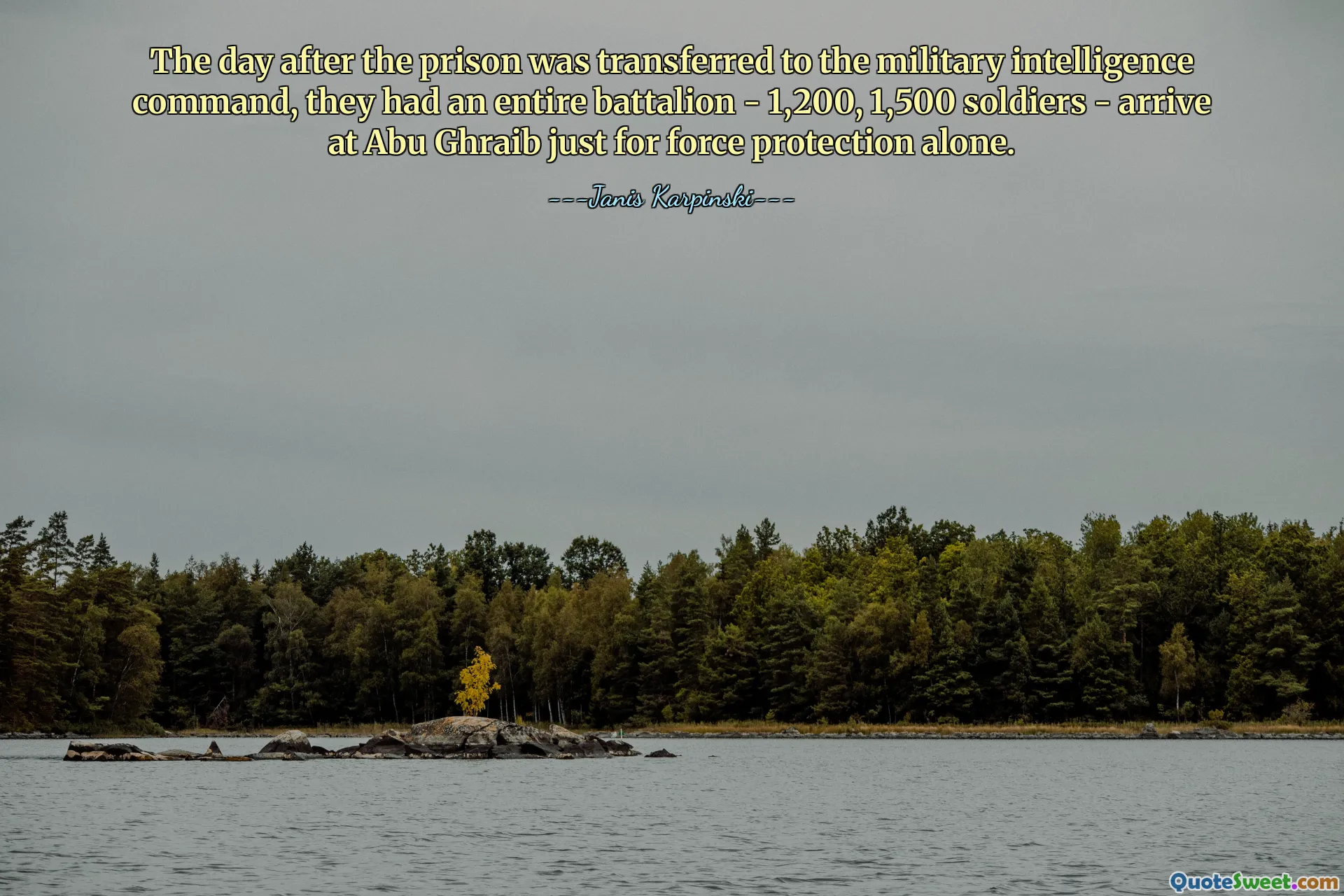
The day after the prison was transferred to the military intelligence command, they had an entire battalion - 1,200, 1,500 soldiers - arrive at Abu Ghraib just for force protection alone.
This quote highlights the massive military presence and logistical effort involved in securing Abu Ghraib prison after its transfer to military intelligence command. The deployment of an entire battalion, numbering between 1,200 to 1,500 soldiers, signifies the gravity of the situation and the importance placed on institutional control and security. It underscores a proactive approach to preventing internal disturbances or external threats, emphasizing the high-stakes environment of wartime detention facilities.
From a broader perspective, this statement reveals how military operations prioritize force protection, sometimes resulting in overwhelming displays of military power. The sheer number of soldiers assigned solely for security purposes illustrates a culture of vigilance, but also raises questions about transparency, the use of resources, and the human impact on both personnel and detainees. Such a significant deployment can be interpreted as a response to potential threats, yet it also embodies the tensions inherent in managing detention centers during times of conflict, where the line between security and sovereignty becomes blurred.
Furthermore, this deployment reflects on the organizational complexity within military and intelligence agencies—how they coordinate efforts to safeguard such sensitive sites. It prompts reflection on the broader implications of militarization within detention settings, often associated with human rights concerns and ethical considerations. The image it creates is one of overwhelming force, designed both to deter threats and to demonstrate authority, but it also invites us to think critically about the balance between security measures and the freedoms and rights of those confined there.











